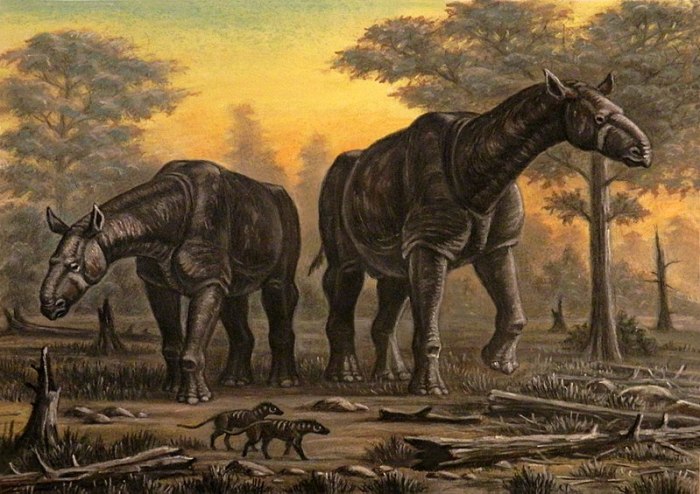Human beings can get used to nearly anything. People can learn to live under oppressive regimes, grow accustomed to wearing jeans that an earlier generation would have immediately thrown out, and adopt tap-and-go technology without a second thought. Familiarity breeds invisibility.
By such a means an Old Testament elephant has achieved a striking invisibility. My students in Old Testament Foundations, a first-year subject that covers Genesis–Kings, have the task of creating a thematic portfolio as their assessment piece, and may choose one of four themes, each with an associated student text in OT biblical theology:
- The story of Israel, utilizing the text by the same title by Pate, Duvall, Hays, et al.
- The presence of God, using T. Desmond Alexander’s From Eden to the New Jerusalem
- Covenant, using Sandra Richter’s Epic of Eden
- Kingdom, with Bartholomew & Goheen, The Drama of Scripture
I must confess to not having read each of these student texts from end to end; I have only browsed portions in connection with student work or class preparation. But wait, I’m working my way towards the elephant: that utter surprise lurking within the pages of our Old Testament that should leave our jaws hanging, but which through familiarity and a dull reading fog, we fail to notice.

Not elephants, but the more interesting and even bigger Paraceratherium, member of the Pleistocene megafauna (
ABelov2014 (https://abelov2014.deviantart.com/) via Wikimedia Commons)
Let me introduce our elephant (or paraceratherium) with a couple of quotes from Pate et al, The Story of Israel:
The prophets…proclaim that Yahweh is the Lord of history and that all of the transpiring and coming events are under his sovereign control. Thus, the invasions by the Assyrians and the Babylonians are due to the fact that Israel and Judah have failed miserably to keep the Law and the Mosaic covenant. God has brought this calamity, using pagan nations as his tools to bring about this judgment (p. 97)
Whoa, this isn’t one of those anti-Semitic things, is it, you might be wondering, if you’re not one of those ‘familiarity brings invisibility’ readers. Perhaps one mistaken interpretation of the Old Testament has been to reach the conclusion that those Israelites, and hence perhaps Jews later on, were notably bad people, worse than other human nations. Another quote from Pate et al shows that they understand Israel’s story to be typical for all humanity, now with reference to the histories:
The Historical Books tell us the story of Israel’s failure to live by the Mosaic covenant in Deuteronomy. The glaring and repetitive theological truth emerging is the sinfulness of humankind and their inability to obey God and live by his decrees. Thus, humankind squanders the presence of God and the wonderful blessings he offers and chooses instead a stubborn life of rebellion that leads to judgment (p. 69).
Oh, so Israel stands for ‘everynation’. Fair enough. So what’s the elephant, that factor that I haven’t yet seen noticed in any of the biblical theologies I’ve browsed, such as those I’ve assigned for my students. It’s this.
What nation on earth carefully builds up and preserves a national epic that primarily emphasizes its own failure to obey its God, and thus an epic that ends in a national tragedy that it claims to have fully deserved! Who else does that? What other ancient nation says that they were frequently rebellious even in the act of being rescued (Exodus & Numbers)? That their greatest hero king slept with a war hero’s wife, then had him left high and dry in battle so that he would die and her guilty pregnancy would not look so bad? That his entire subsequent reign was darkened by the chaos unleashed in that act? That most of her kings failed to reach God’s standard, and that ultimately the doom that fell was fully deserved? That her prophets would not let their audience of the hook until they had stopped blaming their parents’ generation and took ownership of their own responsibility for their predicament (Ezekiel 18).
Does anyone else see how bizarre a national epic this is? It’s like populating your pool room trophy cabinet with all the detention notices and letters home to your parents that you ever received, your traffic fines, your prison record, your letters from the tax office. If you have any of that stuff, I’m betting it’s not on the display shelf.
But Israel’s is – that’s what’s so surprising. That’s the elephant.
I think this is Israel’s greatest contribution to the great biblical redemptive story, and to our Old Testament biblical theology. We prize creation, we prize the way God’s saving acts for Israel build our understanding of redemption.
But from Israel, we learn confession. Ancient Israel was not the only sinful nation of the ancient world. She was just the only one whose national epic was designed, more than anything else, to confess that sinfulness. Only through such confession was the path to forgiveness and reconciliation laid open. As Christians we believe that that reconciliation is only fully provided through Christ in the story told in our New Testaments. But without Israel’s open, courageous repentance, there was no room for this reconciliation. It was vital that she own her covenant failure, and she did so in the very preservation of the document that narrated it.
It was the presence of this elephant in the room, Israel’s repentance manifesto, that made the room in this room for reconciliation.
Now can you see the elephant?
Pingback: This fighting world, Zionism and Israel #7 – Jeshuaisten / Jeshuaists